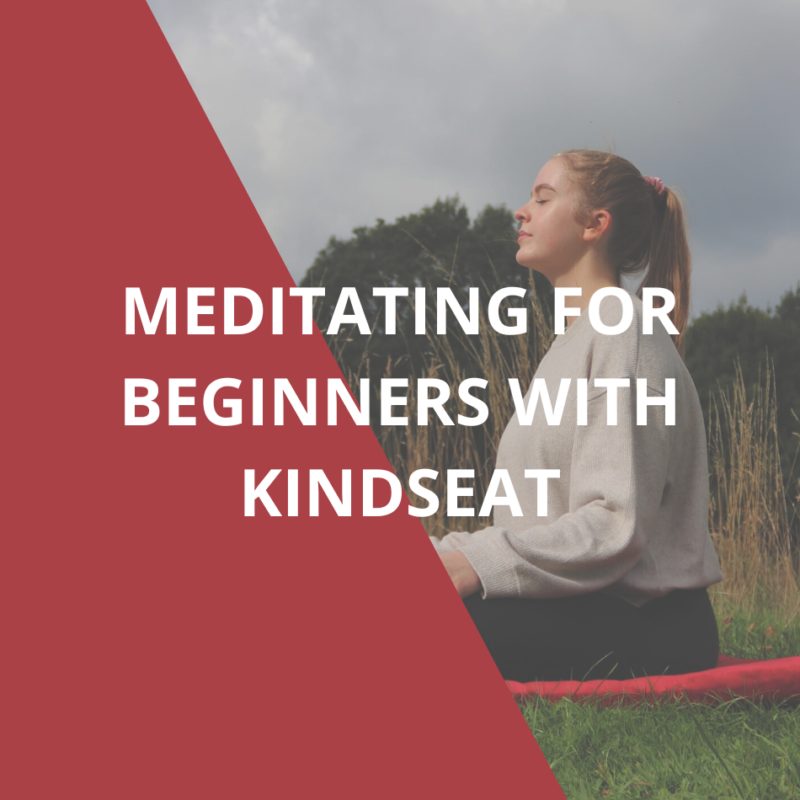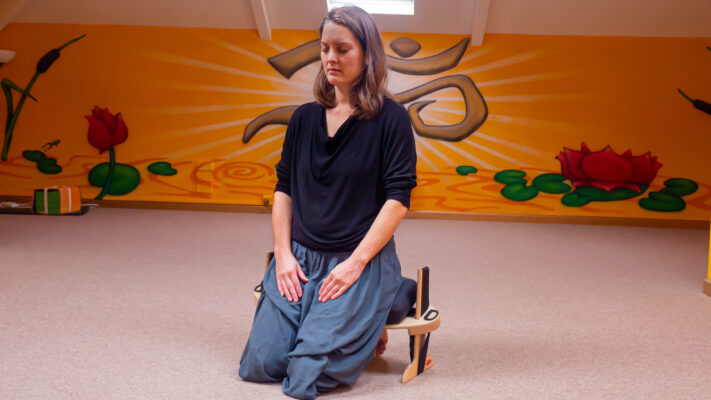The Kindseat Meditation Seat Posts
Meditation for Beginners & Where to Start
What is meditation?
Meditation is the practice of sitting in silence to quiet one’s thoughts and to find inner peace.
It’s a mind and body practice that originated in the Indian subcontinent approximately 5,000 to 3,5000 BCE. Initially, it was a spiritual and religious practice in Hinduism and aimed to remove ignorance and acquire ‘oneness’ with the Absolute.
Around 600 to 500 BCE, other forms of meditation were developed in Taoist China and Buddhist India. Over time, meditation has been incorporated in many cultures from around the world and celebrated as a healing and calming practice.
Why meditate?
Meditation is scientifically proven to provide both physical and mental benefits.
Some proven benefits of meditation include:
- Reduced stress and anxiety – There is evidence to suggest that meditation reduces the inflammation response caused by stress, improving stress-related conditions such as irritable bowel syndrome, fibromyalgia, and post-traumatic stress disorder
- Improved emotional health, including a better self-awareness and self-image – according to research, meditation gives you greater insight into yourself and how you relate to the world around you, allowing you to identify and overcome self-sabotage
- Lengthened attention span and sharpened focus – meditation can increase your concentration and some studies even suggest that meditation can reverse brain patterns that contribute to day-dreaming and an inability to focus
- Improved sleep quality – meditation helps relax the body and prepares it for a restful night, even being able to partially treat insomnia
- Increased memory capability – meditation engages core brain networks, including the relays responsible for your working memory. According to one study, just ten minutes of meditation a day can improve your working memory by 9 percent, and another suggests that meditation reduces age-related memory loss in the elderly
- Reduced (tension) pain and better pain management – studies have shown that meditation improves pain tolerance and one’s pain threshold, with one study in particular suggesting that meditation should be used by terminally ill patients for comfort because meditation can help reduce anxiety concerning pain
Beyond physical and mental wellbeing, meditation is a great way to start your day, setting intention and examining your goals for the day. Or it is a marvellous way to prepare yourself for bed, relaxing your body, slowing your heartbeat, and easing yourself into sleep. Whatever suits you, meditation is a brilliant practice to incorporate into your routine.
The Kindseat meditation seat is fully adjustable so you can place it on uneven surfaces outdoors. The comfortable seat makes sitting for longer periods easy, plus the easily adjustable seat height makes it easy to sit comfortably.
How to begin meditation?
Preparing for meditation
- Set your intention – think about why you want to meditate, what do you hope to achieve? Do you need a greater sense of clarity or just some time out of your day to wind down? Setting an intention before coming to meditate is a great way to ensure you remain focused and visualise your goal.
- Find a quiet area – settle yourself in an area which is distraction-free, perhaps close the door. Create a space in which you will feel comfortable and be able to relax in. Maybe light a scented candle or turn out our lights if you think this will help.
- Use a timer – at first, meditating at long stretches of time will be difficult. Meditation is like anything, it takes practice. So, to ensure that you practice for long enough, but can’t be checking the time as this will break your concentration, it is best to use a timer. This can be for 10 minutes to an hour!
Starting meditating
- Get comfortable – seat yourself in a comfortable position. Do not feel pressure to cross your legs or sit in any way that is uncomfortable, even if this is what you are used to associating with meditation. The Kindseat Adjustable Mediation Seat is ideal for those people that find it uncomfortable sitting on the floor.
Remember to wear comfortable clothes, as you do not want to let anything, particularly any physical discomfort, to distract from your meditative state; loose, breathable clothing is preferable.
- Correct posture – whilst ensuring that you remain comfortable, it is best to perform meditating in an upright position with a straight back (the Kindseat adjustable meditation bench can help you with this).
This posture helps you to be aware of your breathing and concentrate on purposefully creating a slow breathing pattern. Try to stay as upright as possible, without creating discomfort. Do not worry about your hands. Fold them in your lap, let them hang, whichever suits you. Tilt your chin so that you are slightly looking down, this will help open up your chest.
- Focus on your breathing – meditation is all about breathing. Instead of focusing on your stressful day and your problems, focus on controlling your breathing. Deep, slow inhales and exhales will slow your heart rate and help you to relax. It is usually best to breathe only through your nose but do whatever is comfortable for you. Some people like to concentrate on the feeling of air escaping your nose, whilst others like to focus on the lungs as they expand.
- If your thoughts wander – you might find that your thoughts easily wander whilst meditating. Yes, for some meditation provides a wonderful way for them to hyper focus on certain topics, but the practice of meditation is designed for all worldly thoughts to dissipate. If you find it difficult to keep your focus sharp, bring your attention back to your breathing. Useful advice is to focus more on the inhalation than on your exhalations.
- Most importantly, have fun – meditation is a wonderful exercise that will greatly benefit your day-to-day life. But it is important to remember that it is just that, an exercise. It will take practice and consistency to get better. So be sure to go easy on yourself when you are just starting out.
Featured here is a demonstration of a meditator using the Kindseat adjustable meditation bench to maintain correct posture comfortably for longer periods of time, perfect for when you are on the go or just at home.


